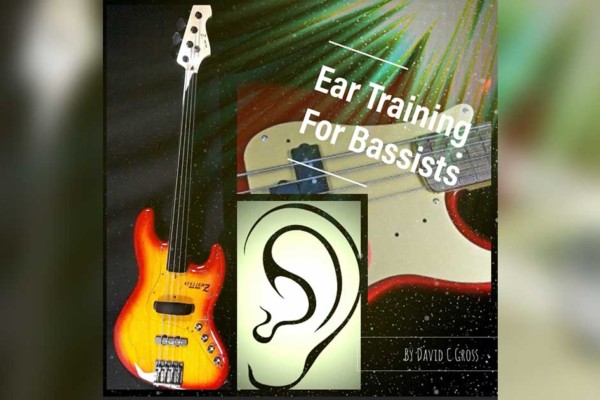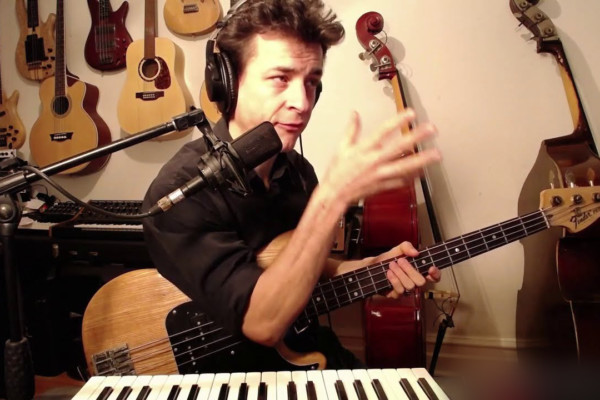Do You Always Hear What You Play Before You Play It?

Q: Do you always hear what you play before you play it? I know a lot of players sing what they play, do some of them actually hear the melodies first? Or are they singing along in real time and following themselves?
A: Interesting question. Everyone will have varying levels of relative/perfect pitch, as well as varying levels of fretboard awareness, intervallic familiarity as it relates to their instrument, and a number of other factors that go into a player knowing what’s going to come out before they play it.
Typically, many of us start on the instrument by learning bass lines and melodies by ear. This is some of the best ear training that you can do as it not only forces you to pick pitches and melodies out of a recording, but it also gets you finding them on your instrument. I believe that we also get a little more in tune with the articulation, tone, and feel of a line when we work it this way (as opposed to grabbing some tab out of a magazine).
Many musicians that get into music deeply, continue to take this skill/exercise further. Practicing picking out melodies or even sketching out complete lead sheets with changes added, by ear (this astounds me but I’ve seen it done. In fact, I’ve been traveling with a pianist who has been transcribing a Tigram Hamasyan piano solo by ear. Just sitting there with headphones on, writing notation on some manuscript paper. He did about 12 pages of transcription in our downtime over the course of a few weeks (we didn’t have much downtime). And it sounds perfect when he plays it. It’s amazing what he’s taught himself to hear, as one who takes it very seriously. It’s the kind of thing that reminds me how far I have yet to develop my ears.
That said, it’s not an all or nothing type of exercise. I’ve had students that say, “my ears stink” and give up on ear training, trying to find other ways to get through the material. Any time we work to develop our ability to translate the music we hear, sing, or think of, onto our instrument, is time well spent.
I have a few ways in which I work on this type of material.
- Sing a bass long or melody to a tune that you know well. Try and find it on your instrument. See if you can continue to ‘hear’ it in your mind as you peck around the fretboard.
- Play a scale or melodic pattern and immediately try and sing it back. Go back and forth singing and playing various scales. Then do them together.
- Practice starting on one note and singing/playing various intervals. Really try to hear what a 2nd sound like, a minor 3rd vs a major 3rd, perfect 4ths and 5ths… etc.. Try to develop the ability to pick out intervals (ANY interval in the chromatic scale)
- Sit with a drone of one chord and try to play and sing simple melodic patterns. Do it both ways.. sing first, then play and then play lines first and try to sing them afterward.
- Focus on recognizing the sounds of shapes on the fretboard. Learn the sounds of the intervals. There is no right or wrong way to explore it but, the more diverse an approach you can take, the more well rounded your abilities will be.
I am by no means an ear training guru but I know that these things have helped me. Simple melodies are a fantastic way to familiarize yourself with the sound of intervals and understanding the sound of intervals is KEY when it comes to hearing what you play ahead of time. (And being able to pull it off)
The more quickly you can connect your instrument to the sounds it makes, the closer you are to making the music that comes naturally to you (as opposed to muscle memory and guesswork).
Just like most skills, this one is best developed a little bit every day. Make it a part of your daily routine and pattern (even singing along to the radio and imagining yourself playing). If you make it fun, you’ll do it and if you do it, you can’t help but fine-tune those ears!
Have a question for Damian Erskine? Send it to [email protected]. Check out Damian’s instructional books, Right Hand Drive and The Improviser’s Path.



